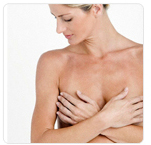
The intake of dairy food and calcium is regarded as having different effects on individual cancer sites on participants, which included women who have undergone hormone therapy, but so far evidence on this has been confusing. Furthermore, impact on cancer in undecided. The following review suggests that calcium intake is linked to a reduced risk of total cancer and cancers of the digestive system, especially colorectal cancer in women who have had hormone therapy. Taking into consideration in this study were factors such as age of the menopausal women, hormone therapy used by the menopausal woman, and duration of hormone therapy use.
Because of a lack of data about the relationship between dairy food, calcium intakes and cancers at particular sites in the menopausal woman who has received hormone therapy, especially cancers with a relatively low occurrence, it has been difficult to evaluate the overall impact of dairy food and calcium intakes on total cancer. Hence, this report included an analysis of the menopausal woman who had undergone hormone therapy and it analyzed whether dairy food and calcium intake were related to risk of total cancer as well as cancer at numerous different sites in the body of the menopausal woman who had undergone hormone therapy.
It has been suggested that dairy food can fight against the growth of colorectal and breast cancer in the menopausal woman who has used hormone therapy. Calcium has been proven to reduce spread, to stimulate differentiation, and to cause apoptosis in cells in the gastrointestinal tract and breast. This analysis discovered that dairy food and calcium intake were greatly inversely linked to colorectal cancer risk in contributors including the menopausal woman who had undergone hormone therapy.
hrt breast

This study is among the first sizeable prospective group reviews looking at dairy food and calcium intakes linked to cancer in the head and neck, esophagus, or stomach. It reported that supplemental and total calcium intakes showed possible inverse associations in the menopausal woman who had undergone hormone therapy. In the menopausal woman who experienced hormone therapy, the associations for supplemental and total calcium intakes were not statistically important, but the occurrences of these cancers were small. On the whole, these findings indicate that calcium intake plays a part in thwarting cancers of the digestive system.
In the menopausal woman who had undergone hormone therapy, supplemental calcium intake was inversely linked to liver cancer, but it was positively related to NHL. In view of the fact that the relationship with liver cancer was observed only in the menopausal woman who had undergone hormone therapy, and that the number of liver cancer cases was small, this data is most likely due to chance. More exploration of dairy food and calcium intakes in and their link to cancers in liver and NHL is necessary.
Conclusion 2: The investigation outlined above focuses mainly on women who have undergone hormone therapy and it reported that dairy food and calcium intakes were not linked to breast cancer. Such data suggests that calcium intake, in line with current recommendations, is linked to reduced risk of total cancer in women who have used hormone therapy and cancers of the digestive system, especially colorectal cancer. Moreover, the associations with dairy food and calcium intakes differed among individual cancer sites in those who had received hormone therapy.